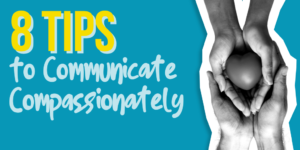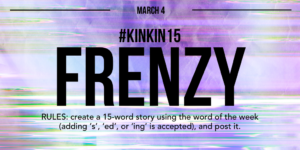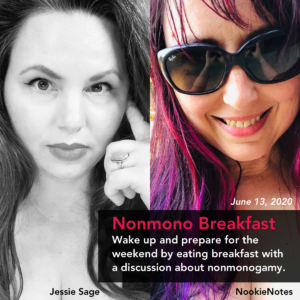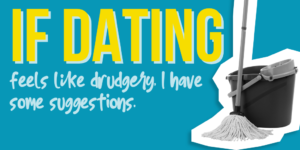I’m pretty sure that unless you are the great Zoltar, you’re gonna answer “No” to that.
Good!
(TL;DR People who expect you to understand what they do not say will also believe they know what you are thinking better than you.)
Because the vast majority of humans are not born with the ability to read minds, and absolutely don’t need to take on that responsibility in their relationships.
No matter how often someone else tries to put it on us.
- You should have known…
- It was obvious I…
- When I said this, I really meant…
When these phrases are in play, it’s a good idea to NOPE TF out of that. That guilt is not yours.
One of the first arguments I had with my Pet was centered here. He had traveled 2 hours to see me one evening, and a birthday party was going on. We spent about four hours at that party, and when we left on the way back to my place, he got sullen.
He had wanted to leave two hours before we did.
But he didn’t say so.
In the car on the way to my place, he said, “You should have known I wanted to spend time with YOU tonight. I traveled all this way to be with you, not at a party with people I barely know.”
Which was completely understandable.
And totally unfair.
Let me explain something about me. There is another love language out there that is not often spoken about: Social Engagement. It is deeply meaningful to me to have a partner who does things with me AND other people in group activities.
Like parties. Camping together. Hiking. Movies. Hosting Dinners.
But aside from that, he didn’t ever, not once, say “I’d love to blow this popsicle stand and spend quality one-on-one time with you this evening.”
And that is the key.
Because if he had said that, or any version of it, I would have known what he wanted. I may have still wanted to stay longer at the party, for the reasons I’ve already stated, but I would have known what he wanted as well, and been open to making different choices.
But he didn’t.
And I didn’t.
And so, when he got upset, I was also upset. Because I felt betrayed.
I did good, though.
I took a deep breath and set my boundary, “I am sorry that we stayed longer than you wanted to. I was having a good time showing you off to my friends, and I wanted you to have a good time, too. I am unable to take responsibility for not knowing, though, because you didn’t tell me. I cannot and will never be able to read your mind.”
Or something like that.
I wish I could tell you it worked like magic. It didn’t. We argued that night and into the next day by mobile when he was driving back.
But holding that line was one step in a long line of boundary-setting steps.
And it taught me something else.
People who believe you can read minds, often believe that they can, too.
Not literally.
He didn’t literally think that I could read his thoughts.
He just believed, deep down inside, that I “knew” what he wanted. And that I was denying him.
And moving forward into the future we’ve shared together, he also believed HE knew what I meant when I said certain things when I most certainly did not.
Yes, I consider this behavior a sort of pale yellow flag.
Something to note and keep an eye on.
It’s how the human brain works.
Our brain takes all of our experiences, catalogs them, and give us shortcuts. “Three people in my life have said this and mean that, so the next person who says this must also mean that.”
Which, theoretically is pretty damn useful.
And a great big seething pain in the tuchis for anyone who most certainly does not mean that when they say this. They actually mean THIS.
And we ran into that as well.
Which was huge for me.
Because I’m a low context person (in most cases). I mean what I say and I say what I mean.
And when people re-interpret what I say into something else, because they really do believe they can read my mind (no, not literally, but for all intents and purposes), it puts me in a bit of a pickle.
I am crystal clear, and there they are busy trying to figure out exactly what I meant.
LISTEN, DAMMIT!
I’ve done it, too, I admit.
We all have. Like I said, it’s how the human brain works.
AND, moreover, we are trained to do this by the people around us.
As much as people say they value honesty and communication, most people make their own comfort and safety a priority over speaking up clearly about what they want and need.
And so, it falls upon us to interpret.
And since that starts happening when we are young, we can’t do anything but go along. And some people are quite empathic and intuitive, and will get it right often enough by reading non-verbal cues that they begin to rely on it and believe in it.
But, there is one thing that will ALWAYS (always, always) throw their readings off: their own elevated emotions will color their experience.
And they’ll get it wrong, but believe they are right, and it becomes a HUGE mess:
They think this person said or meant this. That person said or meant that. And they may or may not have the tools to bridge that gap of communication.
I was lucky.
Pet was willing to be wrong.
Not in the moment. Tensions were too high then.
But after we calmed down and talked things through, after I suggested that he and I agree to always tell each other how we feel directly, and to base our relationship on who we are and how we treat each other with that sort of communication.
Both of us were at a point in our lives where we were willing to chuck everything we had ever done in relationships and try something new, because neither was willing to be anyone except who we were starting a new relationship.
Now, I’m not saying that agreement fixed everything immediately. LOL! It didn’t.
Heck, it was just a few months ago that he was feeling that I “should know” something. But it was an easy fix.
I said I didn’t. He believed me. I offered my solution moving forward. He agreed.
Done.
NOTE: Knowing what someone MIGHT mean can be useful.
Let me be clear: I’m not saying to dump or discount all that hard work your brain has done for you.
I’m saying that it MIGHT be wrong sometimes (a lot), and to use what your brain tells you as a guide, as a probability, even, but never, ever think you are infallible.
Give the people in your life the opportunity to be themselves, and not an automaton of previous experiences and patterns of behavior.
What are your thoughts?
Have you ever thought someone meant something else when they talked to you? Did you react to what they said, or what you thought they meant?
Were you right? Were you wrong?
And do you think it’s your responsibility to constantly interpret others (especially in your relationships), rather than taking their words at face value?
On the other side, have you ever had the experience of someone interpreting what you said clearly as something radically different? And then refusing to believe what you meant, because they knew (or knew you) better than that?
How did that feel?








